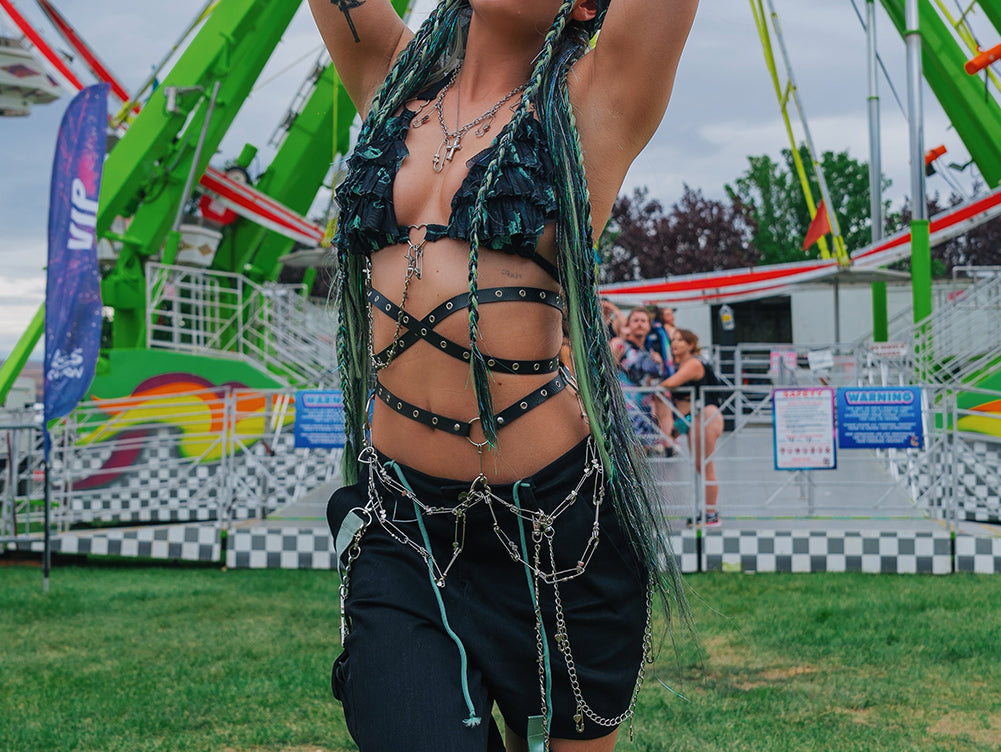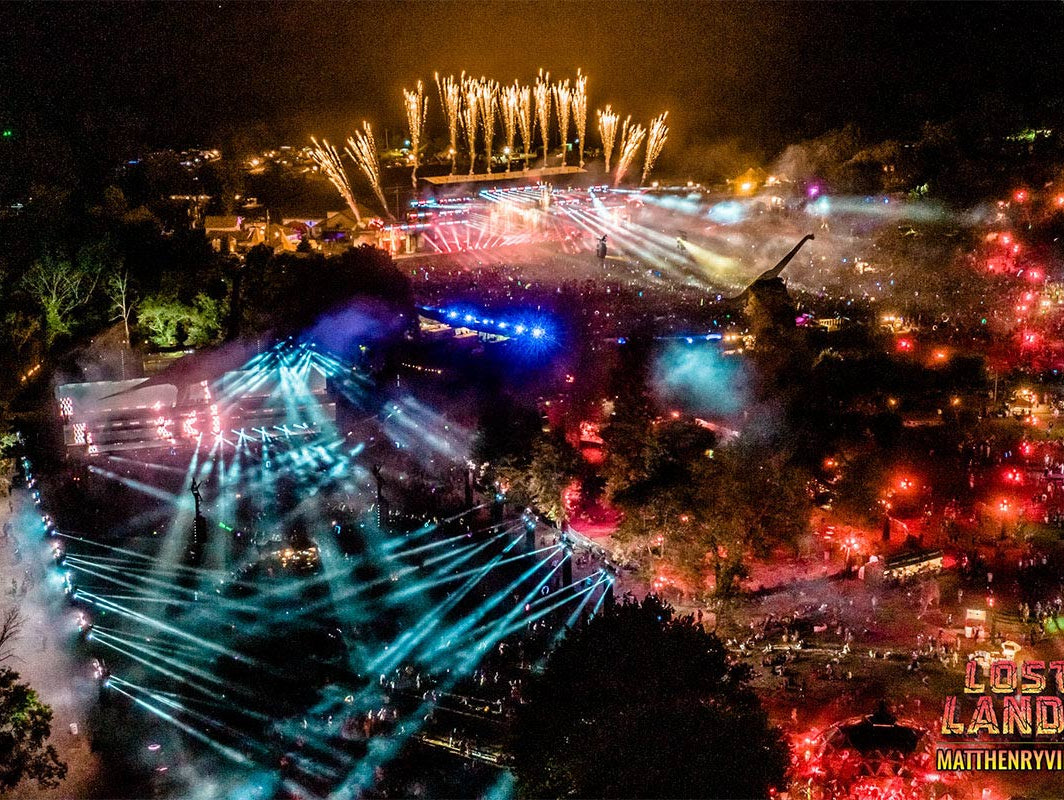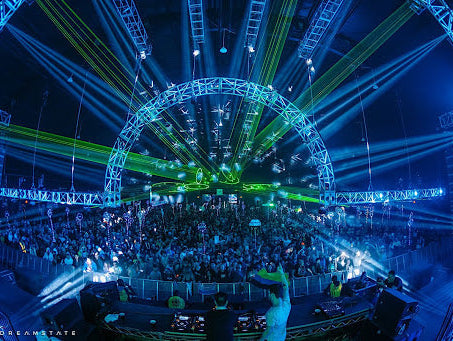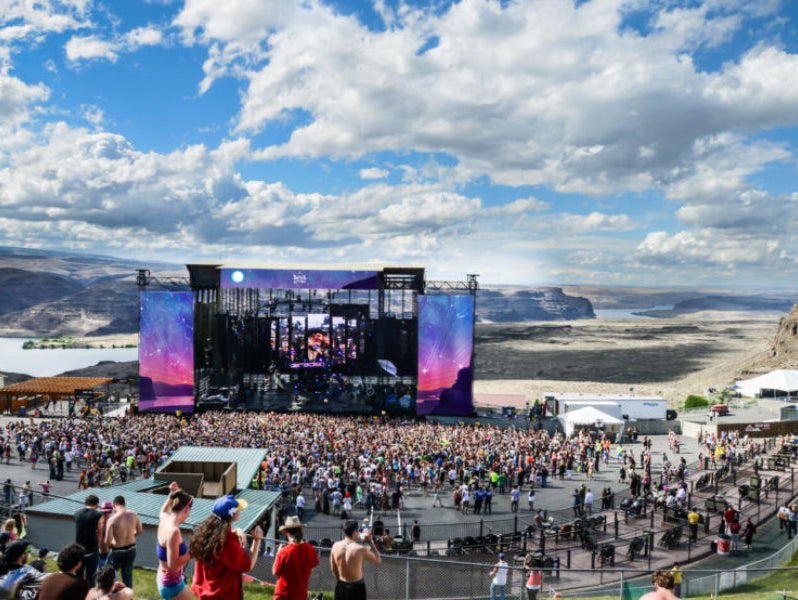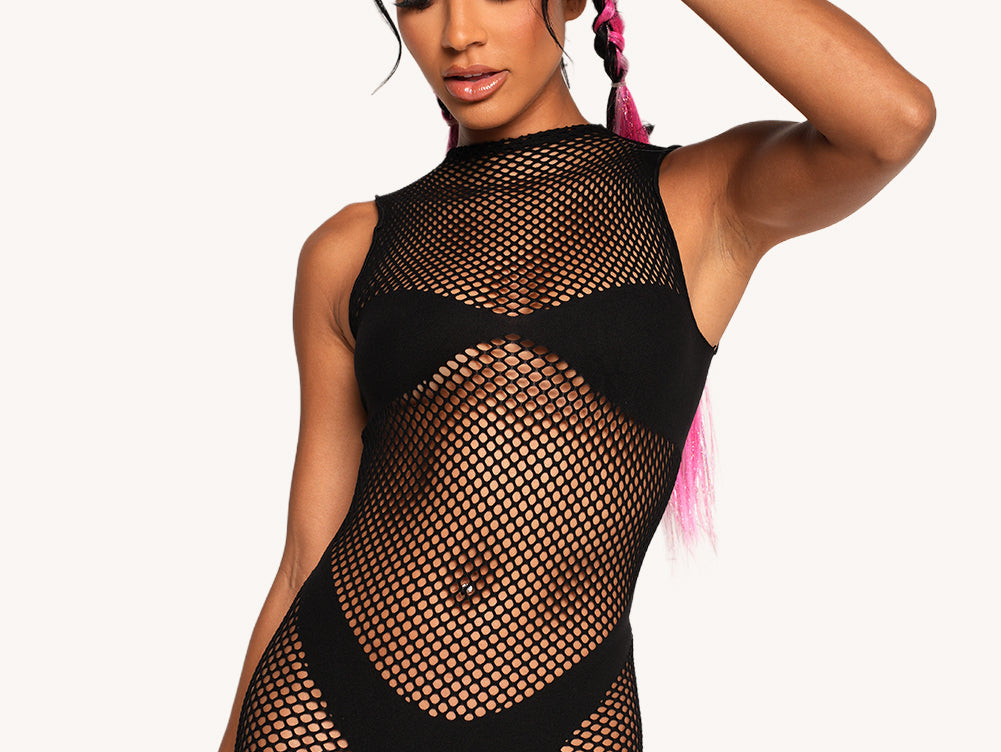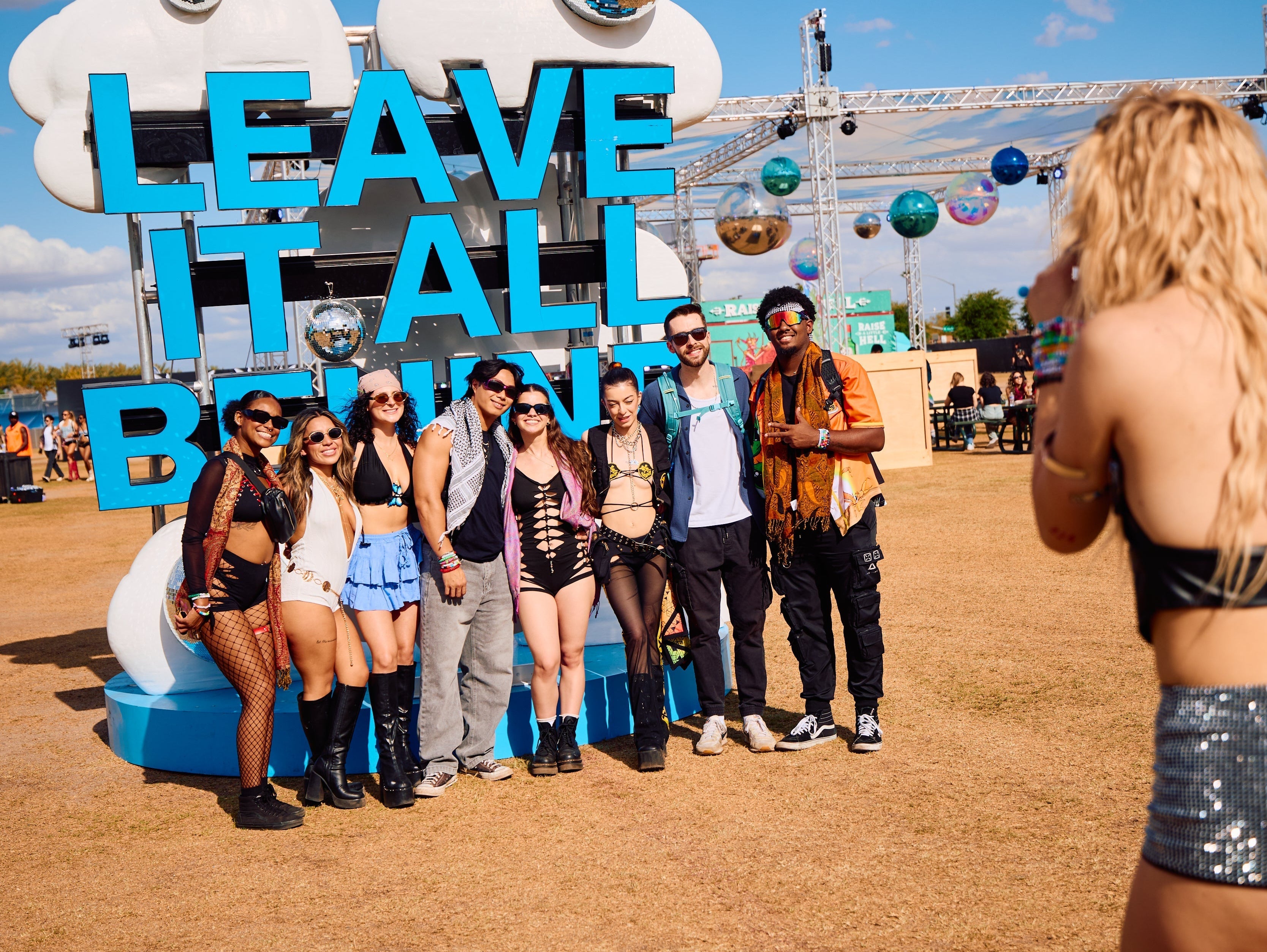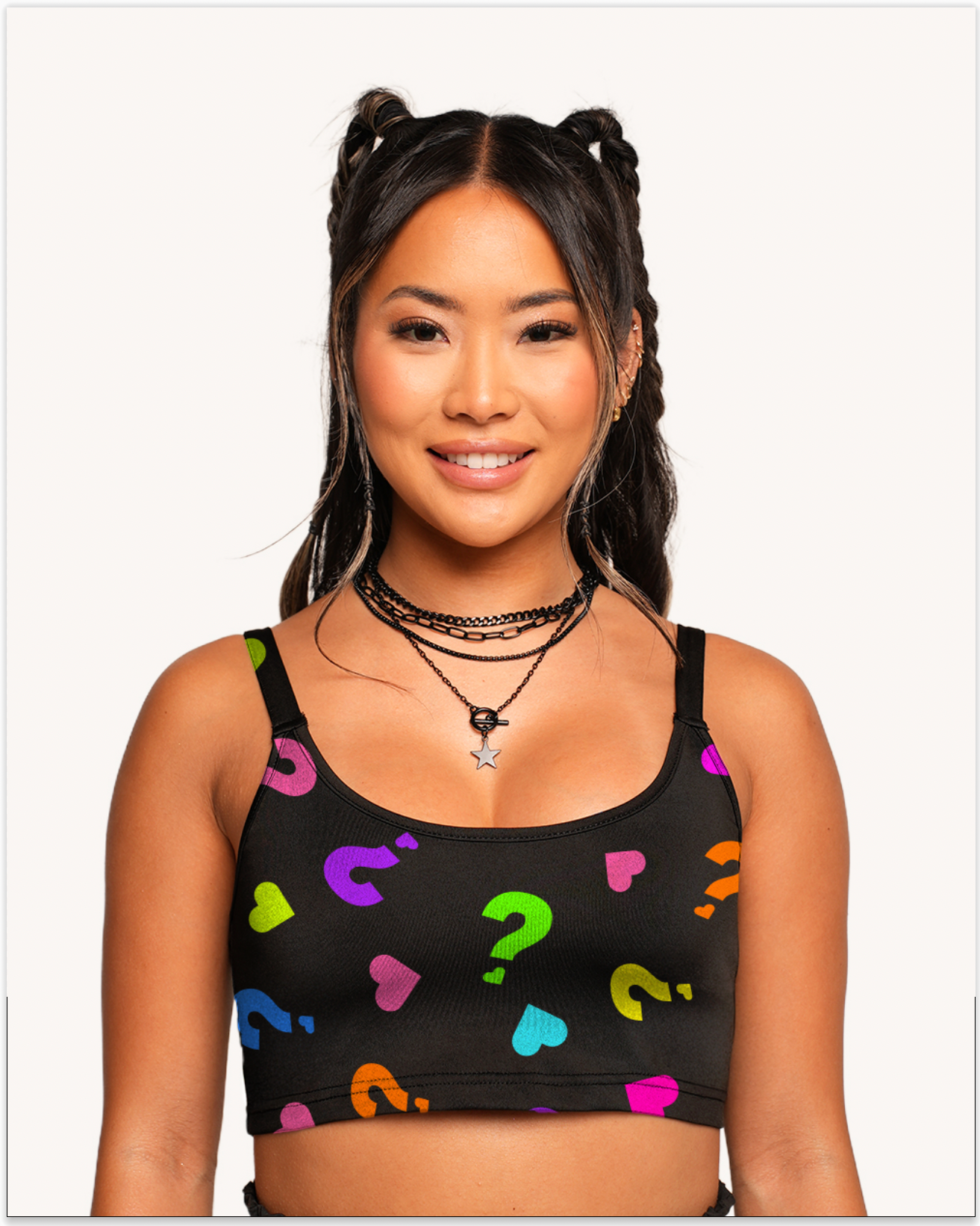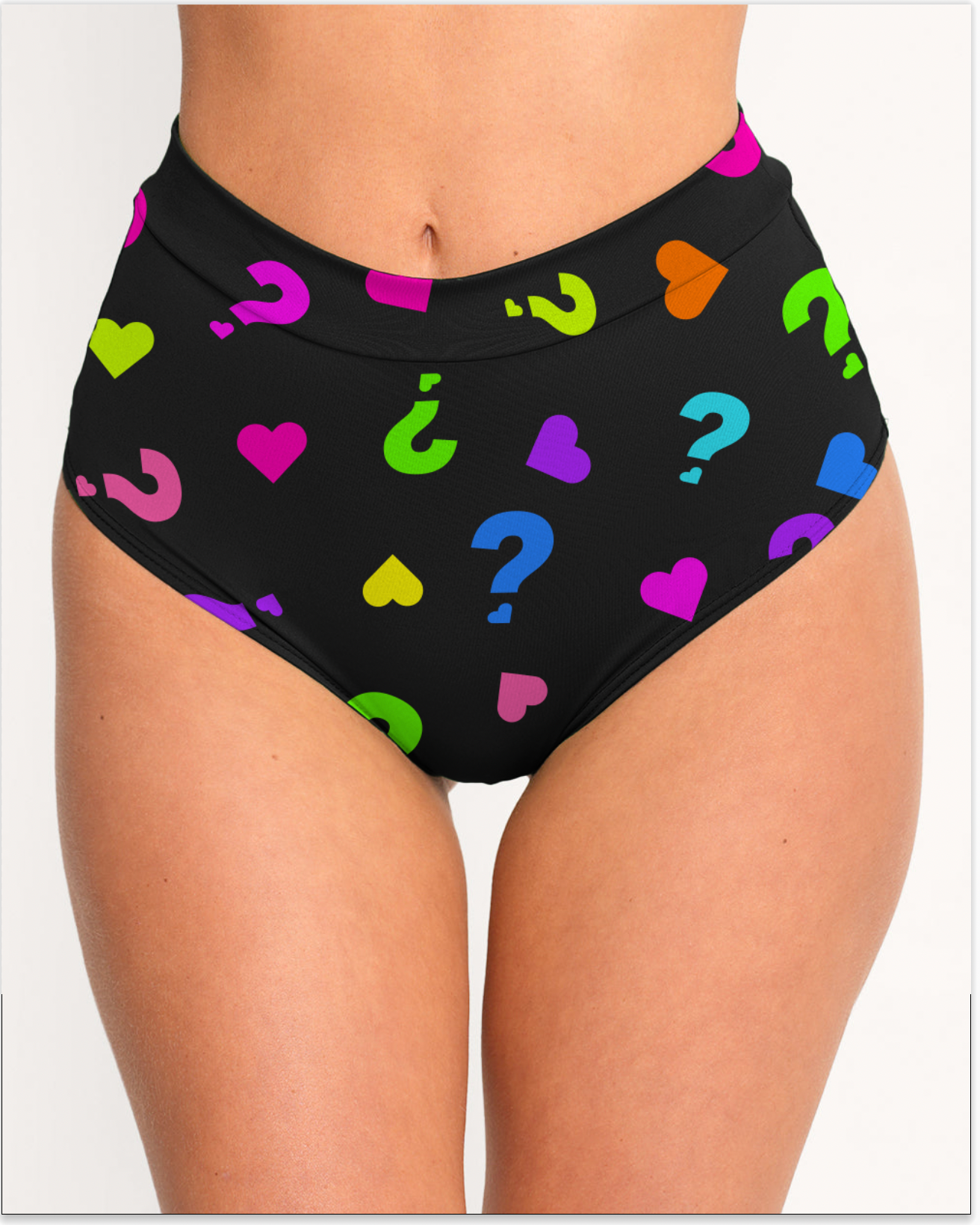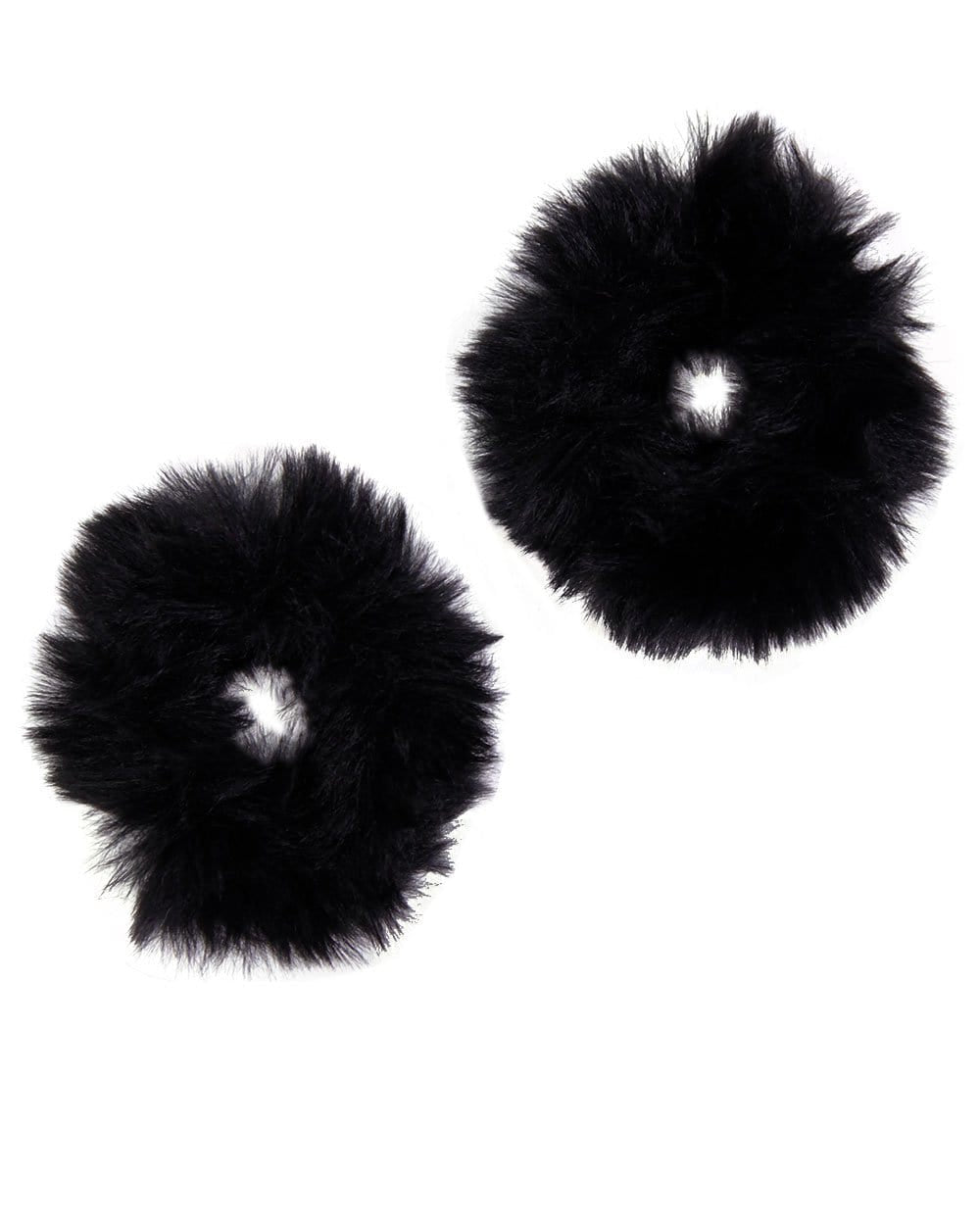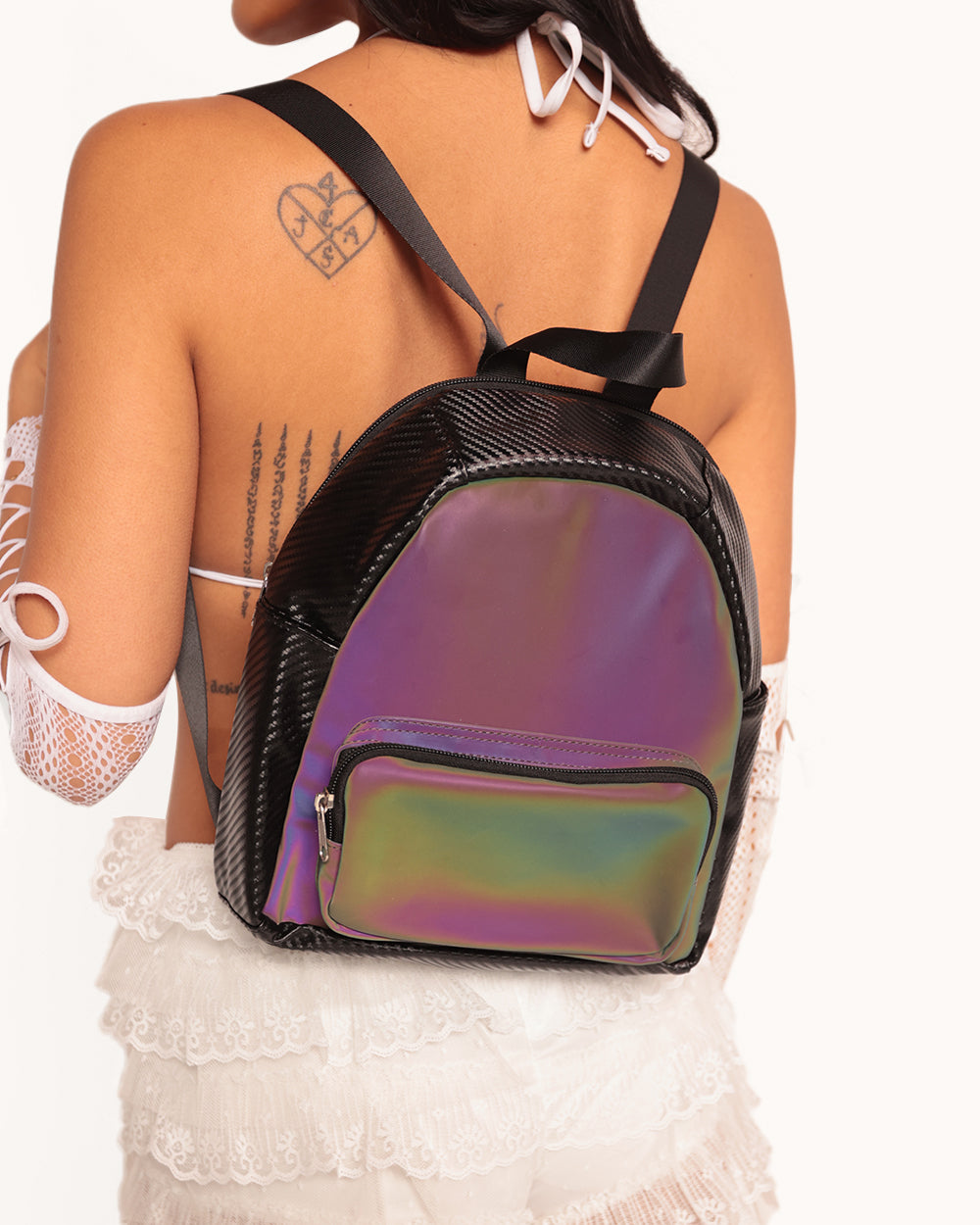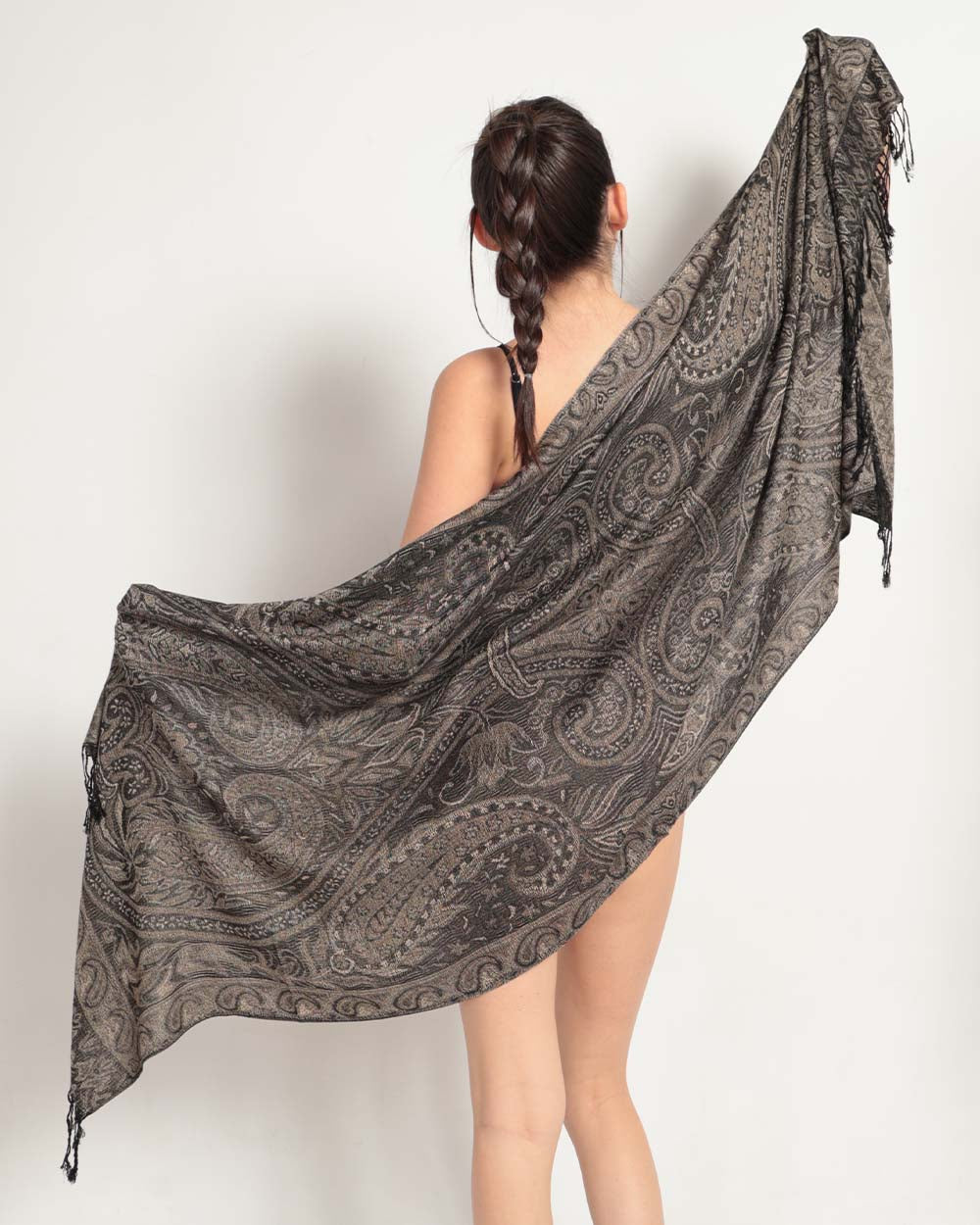Kaleena Zanders is one of those artists who should be on your radar if she isn't already. In this chat, we dive into the story behind her latest track "Looking for Joy," which brings the beautiful fullness of her voice to life with an uplifting disco beat. Kaleena shares how the song came to life during a reflective moment in London, exploring the search for joy even when things feel tough.
She also gives us a peek into her creative process, from finding calm with chill music and nature walks to collaborating with other artists. We chat about her upcoming performance at Das Energi, her take on queer representation in music, and what she’s excited about next!
iHeartRaves: I loved your song, "Looking For Joy," Could you tell me a bit about the production process behind that?
Kaleena Zanders: Yeah, so I did that in the UK. I seem to make some of my best music when I go to London, and this was one of the the ones from there. And that day, I was just kind of feeling spent and and over it, and I was asking myself, 'how do I find joy in all of this?'
Sometimes even the perception of joy and when people look at you and they think you're having a lot of fun, but sometimes you could still be in a weird state of mind. So I was just really trying to ask myself, through ups and downs, how do I consistently find joy? It turned into this beautiful thing that I kind of didn't expect.

iHR: I think it kind of speaks to everyone's need for community and finding joy despite the horrors. How do you find joy?
KZ: That's so funny. One of my processes for finding joy is listening to really chill music that has bells and little chimes and really calming chords. Because a lot of my days are feeling really fast-paced and filled with a lot of anxiety. So you know, throughout my process, through the day, I try to listen to really chill music or classical jazz music.
Another thing is I take my daily walks, which is really important for me and really good for my mental health, because it kind of forces me to just look up in the sky, and I generally love nature and it makes me happy. So, you know, things like that, and FaceTiming friends. Because I travel so much, I don't get a lot of IRL time so I try to FaceTime friends and get their joy.
iHR: Those are really good ways to find joy. I recently heard this quote that said 'you should strive for peace and not happiness, because happiness comes from peace.' And I think that's a really good way to put it. Could you tell us a bit about the music video? What was that creative process like?
KZ: So the music video, so we went on a really interesting journey with it, because I created the storyline with my friend Greg Wolf. It started off with me being with sort of a superhero. And I realized that, you know, I don't have a million dollar budget to make something like that just yet. So I scaled it back, and I was just thinking, 'how do I just tell the story of myself?' which is, you know, the fun auntie. It's kind of inspired by reincarnation. I always feel it's sort of calling to the 60s or 50s or the 70s.
I was trying to channel that energy but in a new way. So it's more of a conversation about my personal story, that's why it's just me in it. And, you know, different evolutions in my daily life or different scenes.
iHR: That's a really cool perspective. As a songwriter and producer, which usually comes first? Do you have an idea of what you want a song to sound like before you do the lyrics or vice-versa?
KZ: I would say this year—I'm going to talk about this year, because my process has evolved quite a bit, and since I travel so much for shows and everything. Now it's important for me to have a couple more minds in the room, because I'm often really tired and I need to be able to bounce off ideas and jar my memory and energy.
So a lot of times I'll have other writers and producers in the room, and I will kind of go off of a feeling, you know, that I've been going through. I've been watching politics a lot lately and while I do try to ground myself, I pay attention. I'm also being super empathetic to everything. I usually will have these ideas or a sonic palette from songs that I've heard, and then I try to show the examples [to my collaborators].
It usually comes from this the music first because I love production, I love music. I love the actual music before lyrics. So I will usually try to find a bit of sound first, and then then it goes into, 'what was I feeling,' you know?
iHR: And you've had quite a few big collaborations, like the one you did with Sunday Scaries, or the recent one with Tchami and Malaa. How did those come to be and what was that production process like?
KZ: So with Sunday Scaries, one of my closest friends, Adam Novodor. He actually introduced us. He sent me the track first. And he was like, Hey, would you want to sing this? And I was like, I don't know, because I'm really trying to make sure that, in this day and age, that I'm the focal point for my own project. And because I've done a ton of features. But there's something about this song that made me think 'this is sick,' and then I recorded it, and I started playing it on my sets. Then we recorded together and now we've actually had a really fun little friendship created from that.
For Tchami and Malaa, actually last year they played my song "Vibration" during their Coachella set, and I posted about it and Tchami offered to work with me and I was like, 'oh my god.' And then after it took, maybe eight months for us to actually work together between traveling and him living in a different country. He was really nice because he wanted to take the time to listen to my music in real time. So we got to FaceTime together and listen to ideas and discuss what we're both shooting for.
I really love when a producer and a DJ are really interested in me as a person, and what my message is, instead of just being like, 'Hey, can you sing on my track?' I think that's way important for collaborations. So that's kind of how it started, and then I created a top line over here, and then sent it, and then he loved it and finished the track.

iHR: That's awesome. And I love that you had a little bit more creative control over the message.
KZ: Yeah, in this day and age, I really don't do songs if anyone's not interested in me as an artist.
iHR: So Chicago is the birthplace of house music, and I noticed that you played at Chicago pride this year. What was that experience like, being at the forefront of a black and queer genre?
KZ: I feel like house music was created by a lot of queer, brown people. I think it's evolved so much so I don't know if I experienced that there? Instead it was everybody, and everyone, every all different types of races. And everyone was very enthusiastic. And I wouldn't know necessarily if they are influenced by house music, but they definitely loved it. Also, the bill had JoJo Siwa on it, so it was very youthful and young. I'm not sure how in touch they are, even with their own culture there in Chicago, but I do know that it was like nothing I've ever felt in a crowd.
iHR: I've noticed this kind of shift with the rise of artists like, Chappell Roan, for example, that are kind of really bringing queerness and queer stories into the forefront of music, and not just in pop music. But I'm curious, how has that cultural shift been to see as another queer artist, and how do you hope to see this go even deeper in the future?
KZ: What I think is nice about Chappell Roan is that she is bringing a very specific culture to the forefront of gay culture, and that's lesbian and women-focused dialog being queer, because we're very much getting over the hurdle of [only including] a gay man's experience.
I feel like lesbians are always like, pushed in this bubble, and as a result, you don't even have that many parties or events related to us, everything is just gay, you know? It's like, 'where even am I in that?' It's really nice that even with Billie Eilish coming out, it's so important for more female or female-presenting, non-binary people to to talk about their experiences and their love experiences, because it's been so male focused.
iHR: That's a good point. How do you hope to see that bleed into electronic music?
KZ: Well, I think it just takes more [representation]. There's J Worra, there's Sherelle, there's quite a few artists who are pretty open about their their sexuality. I mean, my biggest thing around what I'm trying to do in my dance sphere is that I'm trying to bring visuals to it. So I may not necessarily be talking about my sexuality, but I just me existing. I have a lot of I do a lot of interviews talking about being queer.
So it's like me existing. Sometimes I even hear people say 'Dude, it's so great that you're queer, woman, black woman in this space, and you're getting the shot that you're getting,' so I think that alone helps. I want to collaborate with all these queer people. That would be the best way to bring it forth, but just existing and being, having them on the bills and and having promoters and people still just know who they are, I think that's, that's the biggest step.
iHR: That's awesome. So with that being said, let's talk about your upcoming show at Das Energi. What can we expect from that show?
KZ: It's gonna be a lot of soul. I like to play a little bit heavy when I'm doing festivals. So bass house mixed with my own sound and Chicago house.
iHR: Will you be teasing any new music?
KZ: I'm gonna play two new songs. I have a song with Tchami coming up again in September. It's called "Daddy Keeps Calling," and this time I will be leading it, and it's going to be on my EP Glorified that's coming on October. And then I have another song called "Burn It Down," which comes out in a few weeks.
iHR: What does festival fashion mean to you?
KZ: Well, it means 'how can I stay the coolest and look cool' so I usually wear a button up. Maybe it's a print, because prints are always something. You can come to a festival and look cool and they look cool in pictures. And depending on the venue and the weather, like, I have really cool shorts.
That's funny that you asked that, because I think when I started touring two years ago, I was always worried so much about how to be dressed up. And then I realized I'm just enough, you know? A lot of DJs—specifically male DJs—never dress up, you know, they're always in basics. So I keep asking myself 'how do I bring that mentality to being a woman?'
It is nice, obviously, when you do have the woman who does love to dress up, but that's by their choice. It's also an interesting question about what people gravitate towards to. But yeah, I just, I decided that I was enough, and then if you don't like what I'm wearing, then then you're not my fan base.
iHR: Yeah, I've personally gone through phases where I've tried to really dress up, but I ultimately just gravitate towards comfort and I just enjoy being there more than dressing up, but I love seeing other people dress up.
KZ: Yeah, one thing I noticed too is if you work out, you feel good, and you have some sort of personal health routine, then that shows and then whatever you're wearing—your confidence, your attitude—ust kind of comes through your clothes.
iHR: Totally. So my last question is, if you made a piece of Kandi today, what would it say?
KZ: I would have it say Namaste. Before music took off, I wanted to be a yoga instructor. Even now, when I leave a situation, or, you know, even in the conversation, sometimes I just go 'namaste' like you know, 'everything's good.'



